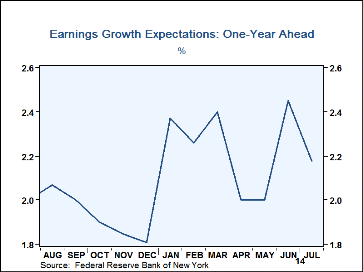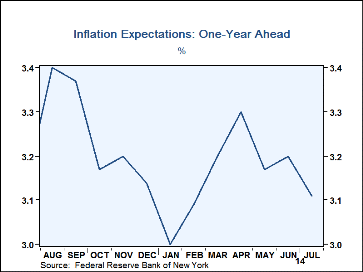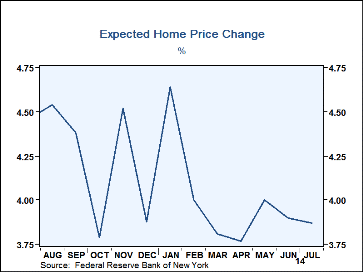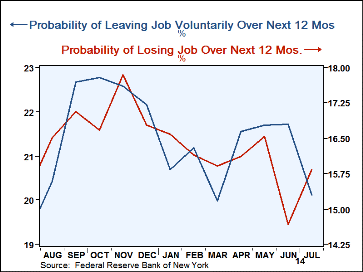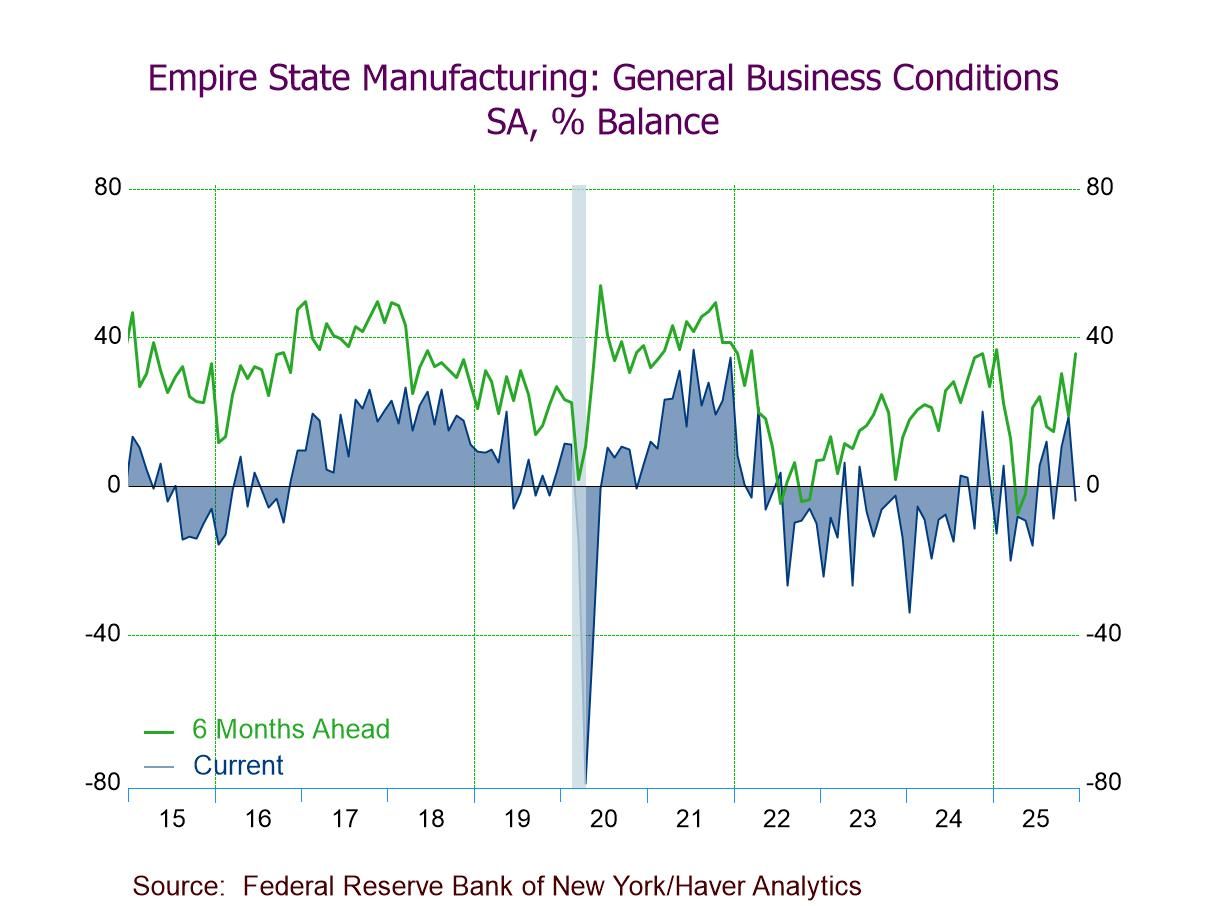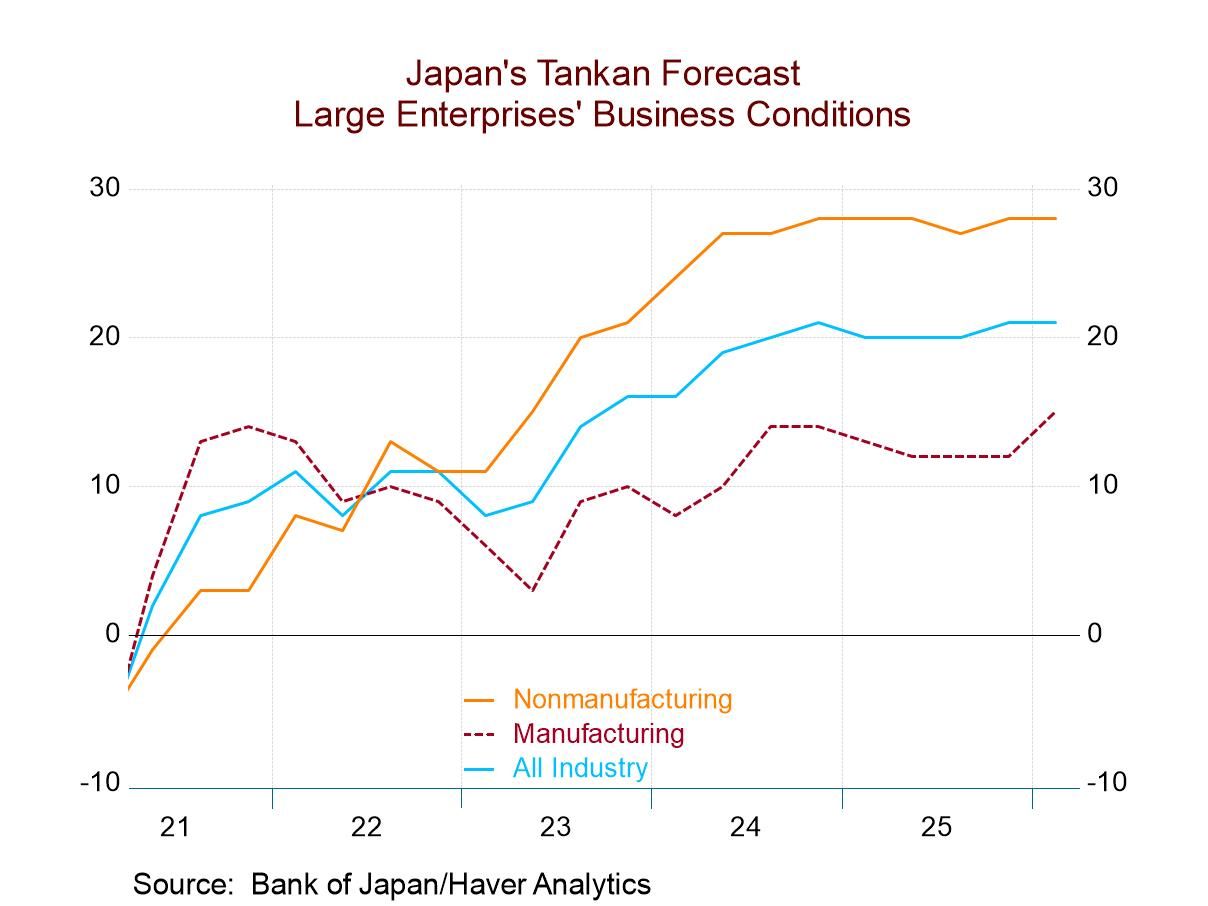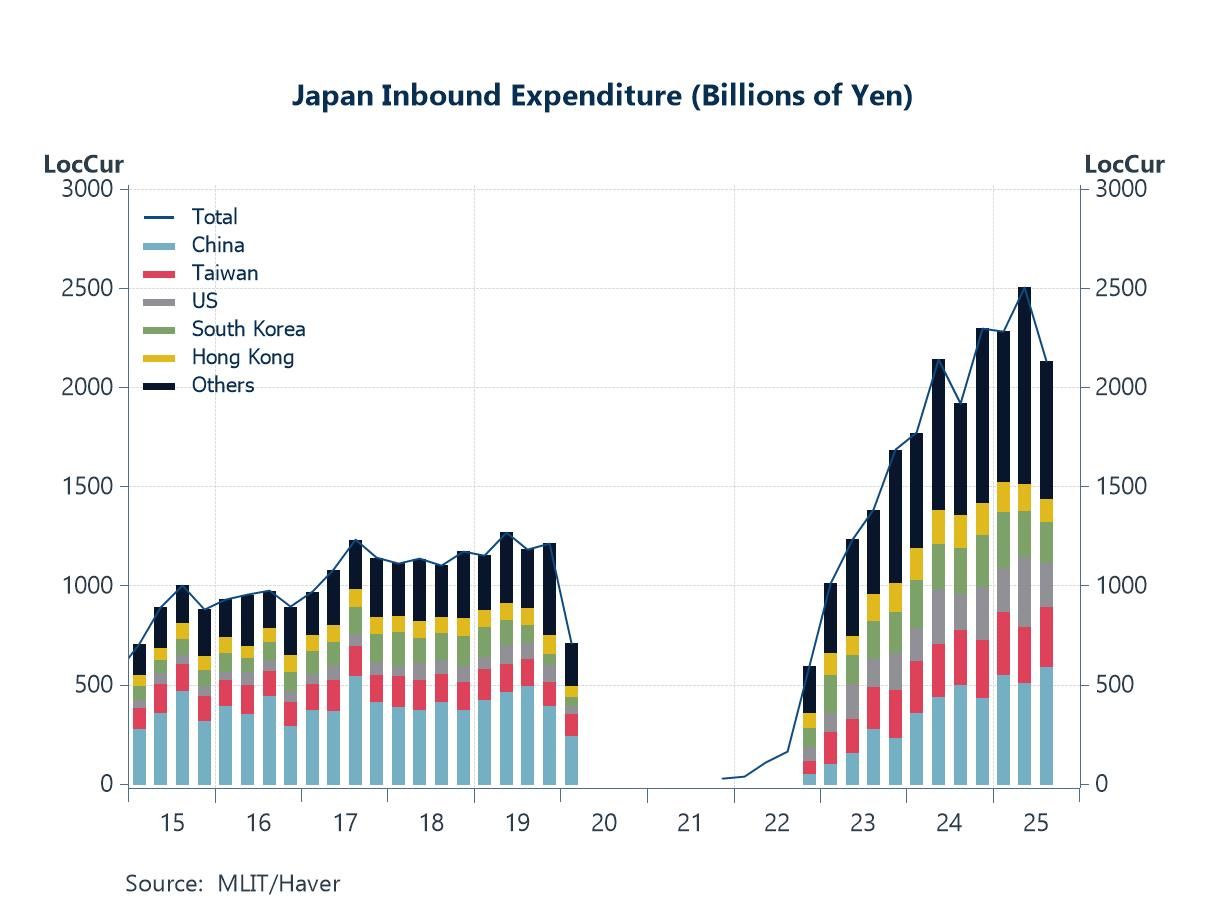 Global| Aug 11 2014
Global| Aug 11 2014N.Y. Fed: Consumer Income and Inflation Expectations Slip
by:Tom Moeller
|in:Economy in Brief
Summary
Income growth expectations, as measured by the Federal Reserve Bank of New York, deteriorated in July. The 2.2% expectation for next year's earnings growth reversed most of June's improvement, although it remained up slightly from the [...]
Income growth expectations, as measured by the Federal Reserve Bank of New York, deteriorated in July. The 2.2% expectation for next year's earnings growth reversed most of June's improvement, although it remained up slightly from the 1.8% low in December. Expected household income growth of 2.2% also was lower versus 2.6% just three months ago. Expectations varied greatly, however, by income bracket. High income earners expected to earn 2.8% or more during the next year, still a percentage point greater than those earning less than $50,000.
Households look forward to inflation easing a bit. The expected inflation rate of 3.1% during the next year was down a bit from 3.2% in July. That also was down from 3.3% three months ago and versus 3.4% last August. Inflation expectations during the upcoming three years remained constructive, calling for an inflation rate of 3.2% versus a 3.8% rate last August.
Home price expectations were a little less optimistic. The latest figure of 3.9% home price inflation for the next year was stable with last month, but down from 4.6% in January. It compared to a median estimate of 4.9% inflation for the next three years, down from 5.5% last summer. By region, expectations for home prices during the next year varied between a stable 3.1% for the Midwest and a moderated 4.9% in the West. The expected home price change in the Northeast improved to 4.4% from a low of 3.0% three months ago.
Perceptions of employment conditions were varied. The 15.8% who thought they would lose their job during the next twelve months was up a bit m/m, but down from last year's 17.9% high. Job churn was in less evidence as just 20.1% thought they'd leave their job voluntarily, near the series low.
The new Federal Reserve Bank of New York Survey of Consumer Expectations is dedicated to household finance. The information collected in the survey on household income, spending, and access to credit provide a real-time picture of U.S. households' situation and perceptions. The Consumer Expectations data can be found in Haver's SURVEYS database.
The Great Recession: Moving Ahead is today's speech by Fed Vice Chairman Stanley Fischer and it can be found here.
| Survey of Consumer Expectations - Federal Reserve Bank of N.Y. (%) | Jul | Jun | May | Jul'13 |
|---|---|---|---|---|
| Earnings Growth: One-Year Ahead | ||||
| Overall | 2.2 | 2.5 | 2.0 | 2.0 |
| Education High School or Less | 1.9 | 2.5 | 1.6 | 2.0 |
| Education Some College | 2.1 | 2.0 | 2.0 | 1.3 |
| Education BA or Higher | 2.4 | 2.7 | 2.6 | 2.4 |
| Median Expected Inflation Rate | ||||
| One-Year Ahead | 3.1 | 3.2 | 3.2 | 3.2 |
| Three-Years Ahead | 3.2 | 3.3 | 3.2 | 3.3 |
| Median Home Prices | ||||
| One-Year Ahead | 3.9 | 3.9 | 4.0 | 4.5 |
| Three-Years Ahead | 4.9 | 4.9 | 5.0 | 5.5 |
| Job Separation Expectations | ||||
| Probability of Losing a Job | 15.8 | 14.7 | 16.5 | 15.4 |
| Probability of Leaving a Job Voluntarily | 20.1 | 21.7 | 21.7 | 19.3 |
| Household Income Growth | ||||
| One Year Ahead: Total | 2.2 | 2.6 | 2.3 | 2.3 |
| Under 50K | 1.8 | 2.0 | 1.9 | 2.0 |
| 50-100K | 2.5 | 2.9 | 2.8 | 2.8 |
| Over 100K | 2.8 | 3.3 | 2.9 | 2.7 |
Tom Moeller
AuthorMore in Author Profile »Prior to joining Haver Analytics in 2000, Mr. Moeller worked as the Economist at Chancellor Capital Management from 1985 to 1999. There, he developed comprehensive economic forecasts and interpreted economic data for equity and fixed income portfolio managers. Also at Chancellor, Mr. Moeller worked as an equity analyst and was responsible for researching and rating companies in the economically sensitive automobile and housing industries for investment in Chancellor’s equity portfolio. Prior to joining Chancellor, Mr. Moeller was an Economist at Citibank from 1979 to 1984. He also analyzed pricing behavior in the metals industry for the Council on Wage and Price Stability in Washington, D.C. In 1999, Mr. Moeller received the award for most accurate forecast from the Forecasters' Club of New York. From 1990 to 1992 he was President of the New York Association for Business Economists. Mr. Moeller earned an M.B.A. in Finance from Fordham University, where he graduated in 1987. He holds a Bachelor of Arts in Economics from George Washington University.


